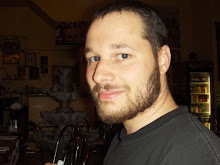Ishmael Khalidi is an Israeli Bedouin who has served in the IDF. I attended his lecture on the position of minorities in Israel last night. It was really more about the position of the Bedouins in Israel than about minorities in general, with him presenting his case that Israel is really treating his people well and helping them to develop infrastructure. They are slowly acculturating them to the modern world. As far as religion goes he described himself (and the people he represents) as the 'secular Muslims,' the "reform Muslims.' According to him, Bedouin culture is primarily derived from tribal traditions, and not the traditions of Islam. Bedouins believe that community is formed not on the basis of religious, linguistic, or ethnic brotherhood, but on the basis of a common destiny or fate. They achieved a good relationship with the early Zionist colonists, a relationship which ensured favourable treatment once the Israeli state was established.
He pointed out the opportunities which were offered to Bedouins, especially women, to receive free educations in exchange for a period of civil service in their own communities and described how the Israelis have attempted to put an end to the (un-Islamic) practice of honour killings. He also did not fail to criticize the Israeli bureaucracy nor to describe the detrimental impact of many aspects of modern western culture on traditional Bedouin values. The failures of Israeli policy in regard to the Bedouin population he blamed on the former, and not on any racism inherent in the Israeli system (although this begs the question of whether the inaction of the bureaucracy is caused by prejudice; an official may be slow to act on an application because the applicant has an Arab name). While he did admit to greatly disliking the land-laws in Israel (which impose restrictions on non-Jewish acquisition and use of land), he expressed confidence that the laws would eventually be changed.
He actually did not focus on the treatment of minorities elsewhere in the Middle-East, other than to state that he thought that Israel has a better record in this regard. He did repeat the canard that Israel is the only democracy in the Middle-East. Why Israel counts as a democracy (and I think over all it does count as a kind of flawed democracy) and Turkey and Lebanon do not escapes me. Even the government of Iran is roughly democratic, even if the Guardian Council has a final veto on all legislation (although in this regard it really functions more like a Supreme Court, interpreting the 'Islamic Constitutionality' of laws).
More to the point, I think the tolerance of a government is better seen in how it treats its critics than in how it treats its friends. I can believe that Mr. Khalidi is sincere in his belief that the Bedouins genuinely benefit from the Israeli presence and perhaps the same could be said for the Bahais and the Druze, both groups having come to favourable terms with the Israeli government. But the pertinent question to ask is how does Israel treat those who see the Israeli state as a colonial regime imposed upon them by outsiders? How does it treat the Urban Arabs, both Muslim and Christian?
Here I think one can make a case that there is clear discrimination by the state, both in the form of laws which restrict Arabs much more than Jews and in the form of budgetary allotments which disproportionately favor Jews over non-Jews. This may seem non-controversial given that Israel is a Jewish state, but keep in mind that the non-Jewish resident population primarily consists of Israeli citizens; the primary distinction being made in these laws is not one of political citizenship (which would seem to be the relevant distinction) but one of religious and/or ethnic origin. Clearly, this sort of discrimination via the force of law is not the same as discrimination via the bullet or gas canister. But Israel is presented not only as 'the only democracy in the Middle East' but, by Mr. Khalidi, as one of the leading democracies in the world, comparable with the US, Canada, and Great Britain. This forces us to ask, "What would be the reaction to the adoption of laws similar to the ones in Israel by these aforementioned countries?" I think the answer to that is obvious; there would be a tremendous outcry both in the international community and among those groups that are negatively effected and those members of the benefited community which have a social conscience.
As to why the focus should be on Israel and not on Turkey or Syria, there are two reasons that spring readily to mind: 1. Israel engages in extensive propaganda activities in the US, while these other countries do not and 2.Israel receives extensive funding from the US government, thus behooving US citizens to take an active interest in Israel's nature and policies. Personally, as a Muslim, I think that my first duty is to expose the pretensions of those who oppress my brothers and sisters; self-criticism, which is _surely_ a necessity, must come second. I don't think this is irrational; one first attends to an intruder in one's home before one attempts to solve a family squabble.
The talk also left undiscussed the elephant in the room: the Occupation of the West Bank and Gaza. What does it mean to be a democracy when the result of one's policies is the military occupation of a population nearly as large as that contained within the confines of one's state? Over all, however, I think attending was a worthwhile experience, affording much material for reflection.

